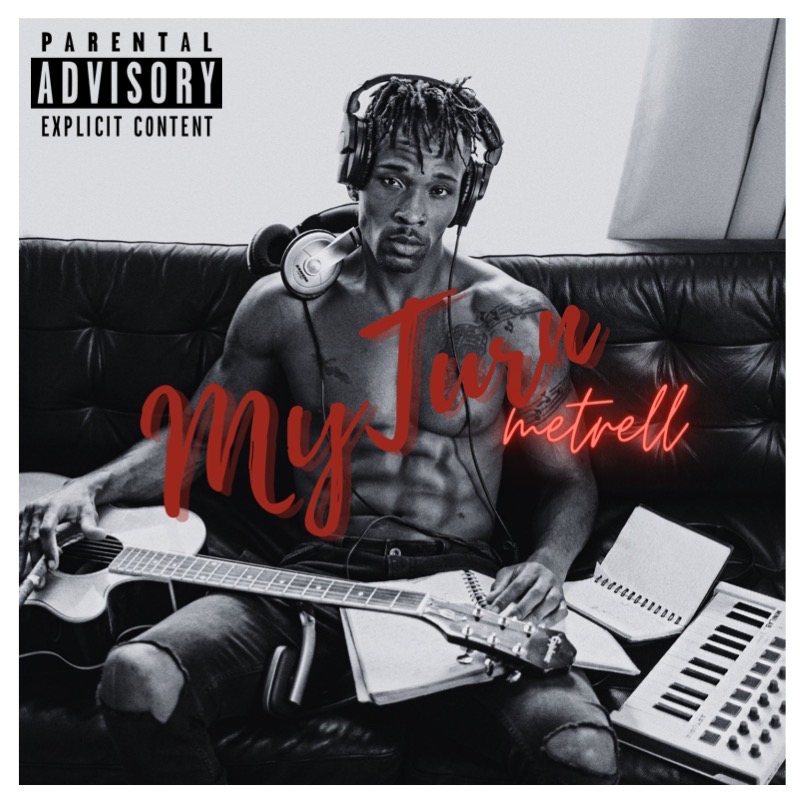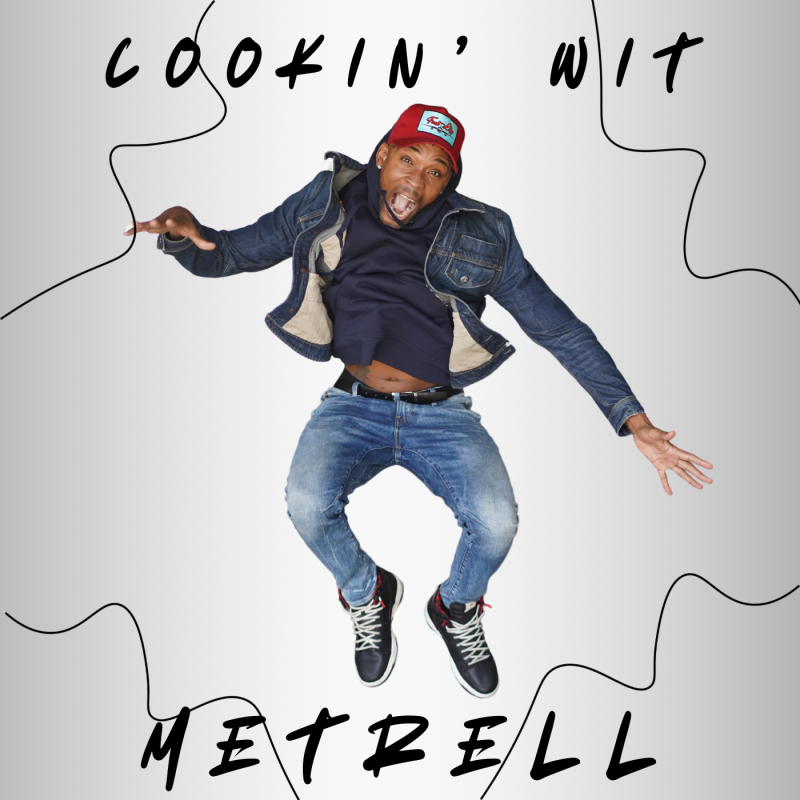
Metrell grew up in the church, where gospel music wasn’t just a tradition—it was the lifeblood of his community. “Those harmonies felt like home,” he says, remembering the pews and pulpit that shaped his earliest memories. But even then, it wasn’t just the music that held him—it was the stories behind the songs. As he got older, writing became a second sanctuary. What began as sacred hymns eventually gave way to a wider musical language, where every genre became a new way to tell the truth. “Storytelling was it for me,” he says. That spark led him from choir robes to studio sessions, from verses scribbled in journals to lyrics that crackle with lived experience.
His sound reflects that evolution. Metrell’s music often begins as spoken word, unfolding like poetry over sparse, intentional beats. Rooted in gospel, layered with blues, and laced with modern R&B, his songs don’t follow trends—they challenge them. “I’m a storyteller,” he reminds us, and he means it literally: his lyrics twist language, demand attention, and reward repeat listens. There’s no autopilot here. His voice—equal parts raw and restrained—feels more like a confidant than a performer. And through it all, he refuses to fit into any mold. As a gay Black man, he doesn’t just sidestep stereotypes; he dismantles them.
That resistance hasn’t come easy. After releasing his debut album, WHO I AM, Metrell caught the attention of multiple record labels. He turned them all down. “I’ll never let anyone own my catalog,” he says firmly. His songs carry real stories—his stories—and he’s unwilling to dilute them for a marketing strategy. Some labels tried anyway, suggesting he adopt a more flamboyant image to match industry expectations of queer Black artists. “They wanted me in makeup and stilettos—not because it was me, but because it sold,” he recalls. Instead, he doubled down on authenticity, even as he faced judgment from family, silence from the church, and the invisible weight of public performance. “I don’t even know what’s fake anymore,” he admits—a line that hits like a punch.

Despite all this, Metrell doesn’t measure success in chart positions. His proudest moments? Finishing a project that felt impossible. Cheering on friends as they rise. “I know the grind. I know what it takes,” he says. Quietly loyal and intentionally behind the scenes, Metrell shows up in ways the industry rarely spotlights. And now, he’s merging his two passions—music and food—into a new chapter. A cooking show is in the works, blending sound, soul food, and storytelling. It’s not just branding—it’s a full-circle return to what he’s always done best: inviting people in.
When asked what he wishes he knew sooner, Metrell doesn’t hesitate. “It’s a business more than it’s music,” he says, echoing a lesson many learn too late. His advice is practical: read contracts, trust slowly, protect your name. Still, he’s hopeful. He has an album, a poetry book, a cookbook, and a cooking show—all finished and waiting for the right time. He’s not in a rush. “When it’s time, it’s time,” he shrugs, more focused on longevity than hype. In the next year, he hopes to go deeper into his craft, not louder.
Metrell’s journey isn’t wrapped in glitter or a viral moment—it’s grounded in truth. “Loving yourself takes work. And healing,” he says. His music doesn’t preach perfection—it reflects life as it is: beautiful, broken, and absolutely worth singing about. With each new project, he quietly redefines what it means to be a Black gay artist in a world that too often expects performance over personhood. “There’s so much beauty in imperfection,” he says. It’s not a quote—it’s a creed.
